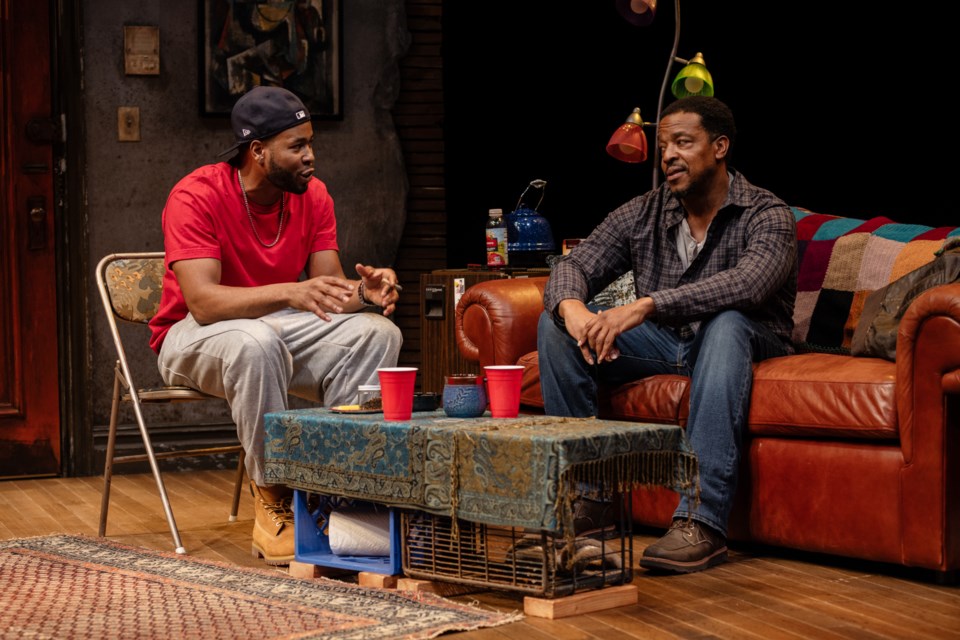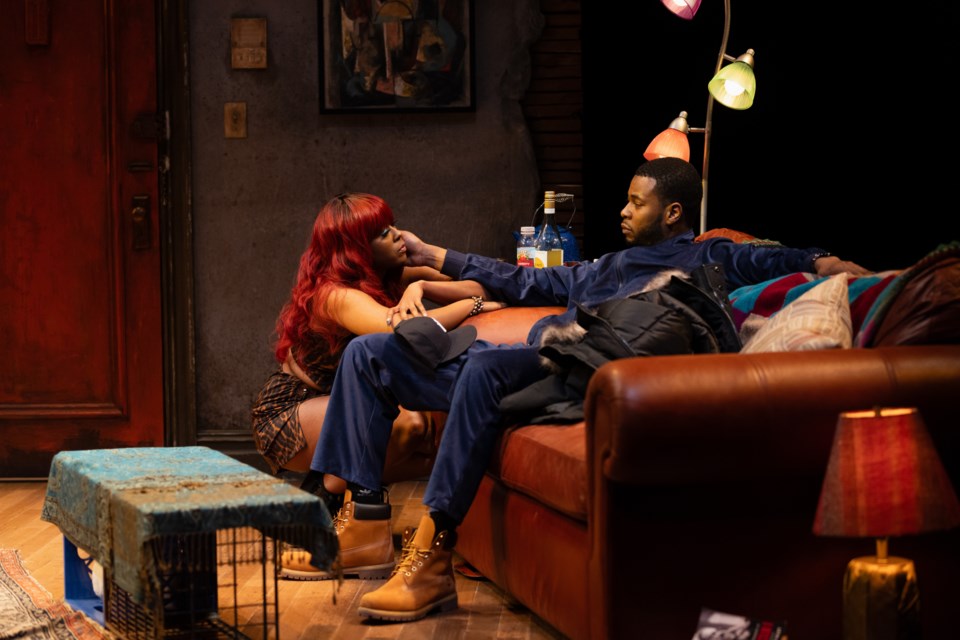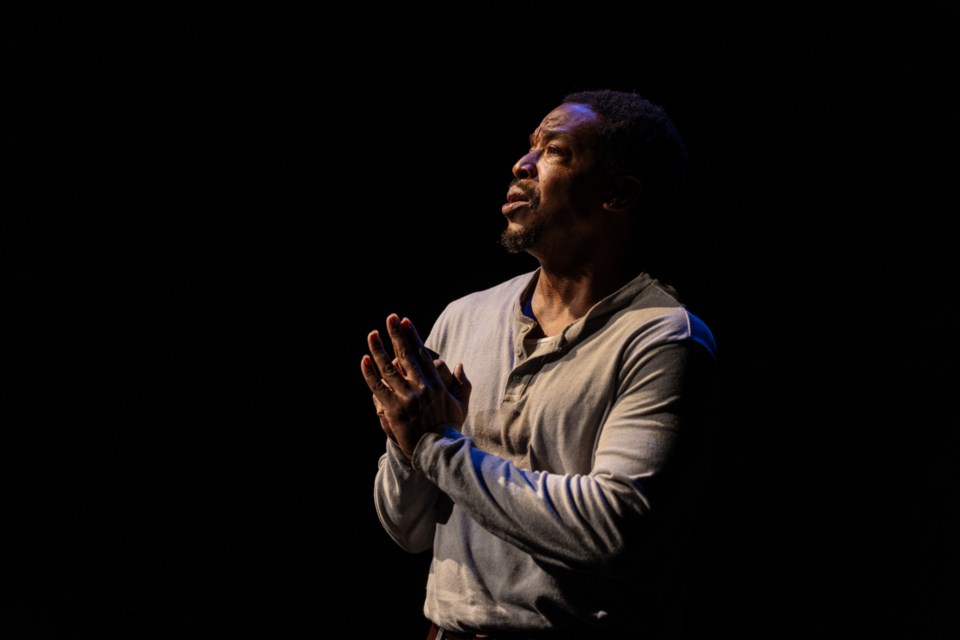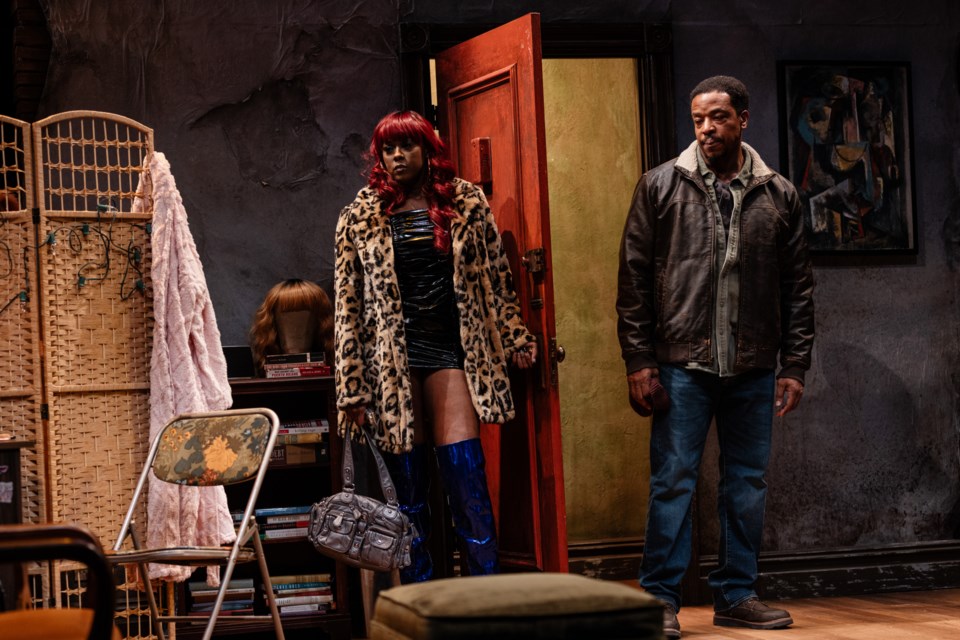“Sunset Baby,” by award-winning playwright and Detroit native Dominique Morisseau with direction by Steve H. Broadnax III, opens on February 20, at The Romulus Linney Courtyard Theatre at the Pershing Square Signature Center (480 W. 42nd Street).
The production kicks off Signature’s Winter/Spring 2024 season, with performances running through March 10. It's the play's second run since its original debut in 2013.
If you’ve been to one of Morriseau’s plays before, then you know well the remarkable experience you’re in for. If you haven’t, then this is the perfect one to dip your toes.
With masterful precision, Morisseau, a 2018 MacArthur Fellow and Tony Award nominee, wields her pen like a scalpel, skillfully extracting a minute sliver of the Black-American experience while pulling back the curtain on, perhaps, the most significant story you never knew you needed to know.
A public housing project in East New York, Brooklyn, is the setting of Sunset Baby, centered around three emblematic characters– Nina, Kenyatta and Damon, powerfully played by Moses Ingram (The Queen’s Gambit), Russell Hornsby (Fences) and J. Alphonse Nicholson (P-Valley) respectively.
The story is about love and the messy and misunderstood things we do to find it, get it, and keep it; make ourselves whole, and ultimately get free!

Nina, dignifiedly named after the singer Nina Simone, and her part-time live-in boyfriend Damon, are 20-something-yr-old partners in crime; they work together “to rob n*ggas” on the streets of Brooklyn. Nina lures her would-be victims by posing as a prostitute and then Damon, who shamelessly refers to Nina as his “b*tch,” steals from them, once they take the bait.
Meanwhile, Kenyatta, Nina’s father who was incarcerated for most of Nina’s childhood, has re-entered her life to try to coax her into giving him something of financial value left to Nina by her deceased mother, Ashanti X, who is Kenyatta’s ex-wife.
That “something of value” are letters written to Kenyatta by Nina’s mother while he was in prison. And for whatever reason that we do not know initially, these letters have come to be worth tens of thousands of dollars.
This revelation is the first bite of an apple that inches the audience closer to the story’s core.
A continual munching on this apple gives us a broader understanding of each character’s motivations, revealing a side that belies the stereotypes of America’s Black ghettos as inherently immoral and simply numb to violence.
We learn that Kenyatta was a well educated political prisoner, jailed for his involvement in the Black Liberation Movement of the 70s. We learn that Nina is just like any other smart, young girl with dreams– someone who pines to one day travel the world and catch the sun setting on a beautiful horizon. And we see Damon’s fierce desire to prove his manhood, protect Nina and gain the respect of his young son.

The audience doesn’t get the convenience of flat characterization. With each bite of the proverbial apple, each character shows a different side that at times contradicts the other. But it’s the same exact person seamlessly and continually shifting between the former, second and later versions of themselves.
By never resting squarely on one version of any person, Morisseau, in her writing, builds a 3-dimensional picture of each character that leaves their destinies entirely up for question while forcing the audience to abandon judgment.
And it’s such a Black story-- Not so much because of the storyline, but the circumstance … and with characters that are much, much greater than the sum of their stereotypes.
Every Black woman will see in Nina some version of themselves but, also, their cousin, their sister, their mother or aunt; a ‘round-the-way, ride-or-die girl who’s smart-mouthed and bold as hell; highly intelligent. Soft. Vulnerable. Loving.
Kenyatta’s and Damon’s characters both present a mirror into the myriad struggles and triumphs of Black men in America, a book smart- and street savvy-ness that spans generations and endures today. The reflection placed on these two characters is so honest, it straddles a fine line between being seen and stripped naked.
And for those audience members outside of the Black American experience but who desire to understand it better, the play delivers a gift: a beautifully raw and masterful narrative, executed with love and compassion.
Ingrams’s performance as Nina is perfectly nuanced, unerring, superb! She is the nucleus to the two revolving male electrons in her life, all together producing dynamic energy! Hornsby is absolutely riveting in the role of Kenyatta, managing the seamless dichotomy of being both disquieting while at once soothing. Powerful.
And Nicholson handles the role of Damon– the quintessential throwaway thug full of potential– with expert precision. His character will have your heart fluttering and flirting with hope and despair simultaneously.
So much light is shed, and emotions run so high in this play, my advice is you bring sunglasses to prevent any squinting and to also cover your tears.
The rattle of subway trains juxtaposed with the music of Nina Simone pulsing through the apartment radio punctuates the dissonance between a cold, bleak existence and one that bends towards freedom through revolution.

“The man in the mirror; the scariest revolution there is,” said Kenyatta in the play, as he grappled with how to show his estranged daughter Nina that he still loves her and always has, despite his absence.
As we continue to munch on that apple and get closer to the core, Morriseau proclaims that, although it remains elusive, freedom is in fact possible, but that revolution is not free! Freedom requires we first unchain ourselves. And love is the key!
At its core, Sunset Baby’s final message is a peace offering to say, we all have a little bit of revolutionary work to do within ourselves to truly get free.
As your African aunties would say, “Ah, heeeeeey! Go see this play!”




